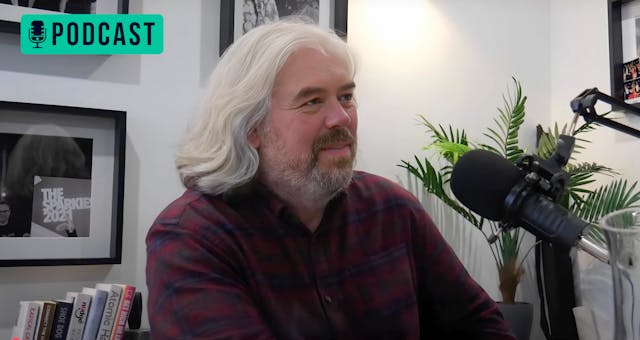Five changes we made in my first year at Rocketmakers

Recently I marked my first anniversary at Rocketmakers and it was a good moment to reflect on the year, how I’ve settled into life at the company and what I’ve achieved with the team here.
When I started looking for a new role, Rocketmakers was on the list of companies that matched my values and after reconnecting with founder Richard, whom I’d first met over ten years previously, I realised that they matched my ambitions in a few interesting ways. In this phase of my career I wanted to focus on positive impact and Rocketmakers certainly does that, as I’ve written about previously.
Now, over a year on and looking back, it was an incredible first year and clearly very busy, but because our EOS process keeps us focussed on a few, important things at a time (our Rocks), I’ve rarely felt overloaded. Rocketmakers is truly a great environment to get stuff done. Listed below are just some of the achievements we have made in the last 12 months.
1) We created an operations dashboard with a weekly project tracking and heat map
One aspect of reporting that we’ve made a lot of progress with is getting a consistent view of data across the company and all of the projects. With multiple project managers managing multiple projects and reporting in different ways it was sometimes hard to understand where to prioritise management time. Working with the PMs we came up with a heat map approach, so that the whole team can see at a glance how each project is progressing.
Each project reports a red, amber or green status weekly on seven individual measures, as well as an overall project status measure. Status changes are highlighted so that it’s possible with one glance to see what’s going on across the organisation. While initially designed as a tool for ‘managing the heat’, the discipline of this regular heartbeat of reporting has made it easier for project managers to be more aware of their individual project circumstances, plus ensuring that remedial actions are more clear, minimising the need for management intervention. Win!
Elsewhere in the business, each team has two or three core metrics that they monitor closely and we have the data to drill down and understand any unexpected variance. We regularly review the metrics that are most important as we learn and twice we have been able to highlight issues in the business and make key changes to improve outcomes for ourselves and our customers. Those two insights alone have paid back the effort many times over.
2) A smoother handover process from business development to project teams
It’s obvious to say that seeking and acting on feedback from customers is critical to building a successful business. What is less obvious is that it can highlight aspects of the customer experience that have changed without you noticing. One of the important aspects of our brand has been the personal touch offered by our founders Richard and Keith. Traditionally they have been there at the beginning of every journey, leading the discovery process, sizing up the task, even contributing code in the early days.
As Rocketmakers has grown in size the number of projects coming through the door has increased and we needed to find ways to preserve the personal input from Richard and Keith and balance this with being increasingly in demand. Responding to this feedback we have adapted our process, ensuring that the handover from the business development teams to the project teams is more comprehensive and preserves the continuity and personal connection with those that had welcomed the clients in and shared their early excitement.
3) We implemented a company Wiki, revolutionising information management and sharing
In a small company that’s growing fast, the management of information can be quite chaotic. Information is stored in multiple places, created in multiple formats and sometimes with multiple false starts. We wanted a way to bring all our information into one place, but also to democratise the way it is created and maintained.
Enter Notion. Originally recommended by one of our engineering team. Notion has transformed the way we create, store and remember information about our business.
Highlights are our Crew Manual (put together by our CPO Sian); Maintenance plans for all of our supported products; Company meeting agendas and minutes; and all of our quarterly goals.
4) We created an Impact Metric to make sure we’re doing the ‘right kind’ of work
Rocketmakers has a ‘Big, Hairy, Audacious Goal’ of positively impacting the lives of 50 million people within 10 years. As well as being a tough thing to achieve, this is also a tough thing to measure. In the interim I worked with our CMO Briony and created a way to assess each of our projects against the UN ‘Sustainable Development Goals’ and track how much of our energy goes into impactful work. It’s motivating to know that our work is doing good in the world and to see our impact increase as we select the right projects.
5) We created a formal support programme, rolled it out and signed up our first 10 customers
Rocketmakers has a legacy of projects that we’ve delivered over the years. A large number of these are still actively supporting burgeoning businesses. As the number of those increases our informal approach to keeping things on track has become harder to manage.
Together with our recently hired Solutions Architect Matt, I designed a support offering that fits neatly alongside our visual, UX and development proposition and that works well for our customers at various stages of their businesses.
We created a support team with a rota for engineers to move in and out of the support seats, and Matt deployed Ops Genie as a portal for our customers to raise incidents and a method to track our responses and measure our support SLAs.
For the first time Rocketmakers are able to offer out of hours support to our larger customers with a choice of bronze, silver and gold packages.
What’s next?
One key area for focus is going to be working with the founders, Richard and Keith to make some decisions about the right size and shape for the organisation. How big do we want to be? How big do we need to be to meet our impact goals? How fast should we grow to get there?
Alongside this we are regularly going to be asking ourselves other questions such as about our decision to be primarily office based going forward. We will continue to explore how we can improve the Rocketmakers experience for our customers and our crew. And we will continue to strive to uncover more impactful partners and projects.



